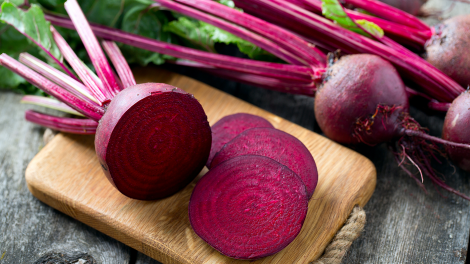Getting enough shut-eye is crucial for your overall wellbeing – but the older you get, the more it eludes you. Experts weigh in.
Sleep is crucial for everyone
Hands up if you enjoy a good night’s sleep – every night. Chances are your hands are down at your sides. This is because about 70 million Americans suffer from chronic sleep problems – which can be dangerous for your health. And many experts believe our eating habits can make or break our sleep — and our sleep patterns can make or break our eating habits.
‘Sleep is a cornerstone of wellness: It’s essential for focused mental performance, a stable mood, a strong immune system, a healthy stress response, proper cellular repair, and a healthy metabolism,’ says integrative medicine practitioner Dr Frank Lipman. ‘It’s when your body does much of its disease-fighting maintenance work.”
According to the Centers for Disease Control and Prevention (CDC) this is the recommended number of hours you should sleep every night, according to your age.
|
13 – 18 years |
8–10 hours |
|
18 – 60 years |
7 or more hours |
|
61 – 64 years |
7–9 hours |
|
65 years and older |
7–8 hours |
But chances are you aren’t getting close to that. In his book How to be Well: The 6 Keys to a Happy and Healthy Life, Dr Lipman explains that ‘Sleep is one of your body's primary rhythms, and when you're not sleeping properly, it's usually a result of something else going wrong in your life during the day. It’s a symptom of some other imbalance.’
So what’s the underlying cause for your sleep deprivation?
Could it be hormonal?
Possibly. When menopause occurs, your ovaries stop producing estrogen and progesterone, hormones that affect your mood, appetite, sleep and sex drive, and more. Estrogen plays a role in the metabolism of serotonin and other neurotransmitters that affect your sleep-wake cycle. It also helps keep regulate your body temperature and has an antidepressant effect. It’s not surprising that once your boy is no longer creating this wonder hormone, you are likely to experience night sweats, lower quality sleep, and poorer mood.
On average, around 12% of women experience sleep complaints. As women age into their late 40s to early 50s, that number increases dramatically to 40%. – Sleep Foundation
Or something else?
While many of us know the basics of sleep hygiene (darkened room, routine bedtime, no TVs, computers or phones an hour beforehand, no vigorous exercise an hour beforehand) not all of us are aware of the connection between a good diet and a healthy night’s sleep.
‘Diet and metabolism can play very important roles in sleep beyond the well-known factors of alcohol and caffeine,’ says American functional-medicine practitioner Dr Greg Plotnikoff. And as Dr Lipman explains, this food–sleep connection isn’t a one-way street. ‘Just as sleep affects our metabolic health, our food choices — including what, when, and how we eat — can affect our sleep quality,’ he says.

Here’s how to eat your way to better sleep
- Time your meals: If you’ve ever gone to bed with a full stomach, you know that sleep and digestion don’t always mix. To avoid indigestion, eat at least three hours before you switch off the lights. This way, your body’s energy won’t be diverted away from its ‘powering down’ mode.
- Check your nutrients: If you follow a vegan, vegetarian or grain-free diet, you could be missing out on amino acids that actually promote sleep – like tryptophan or histidine, says Dr. Greg Plotnikoff, a pioneer of the mind-body medical approach. Find a good functional-medicine practitioner and talk about ways to up your amino acid intake with food (salmon, humus, nuts, high-fat yoghurt) or supplement.
- Find the culprit: Try an elimination diet. ‘Ideally, you will eliminate all the foods that can be irritating and add them back in during a reintroduction phase to find out what is bothering you,’ says Dr Lipman. Typical foods to avoid include grains, beans, eggs, dairy, sugar, soy, corn and alcohol. Ditch food additives and processed foods, including breads, pastries, candies, packaged foods, too. ‘Instead, concentrate on whole foods, including vegetables, a variety of proteins, and healthy fats,’ says Dr Lipman.








Comments